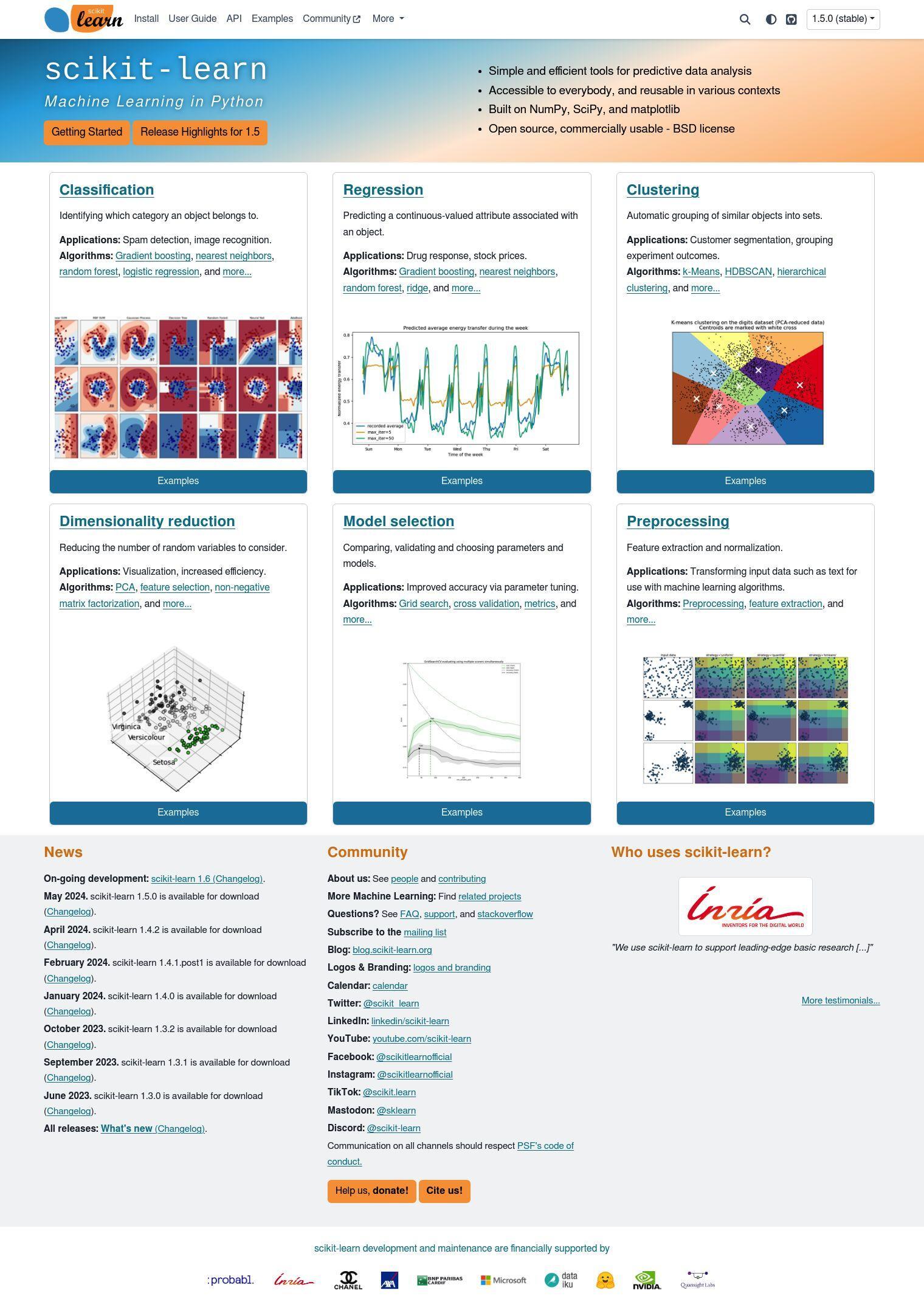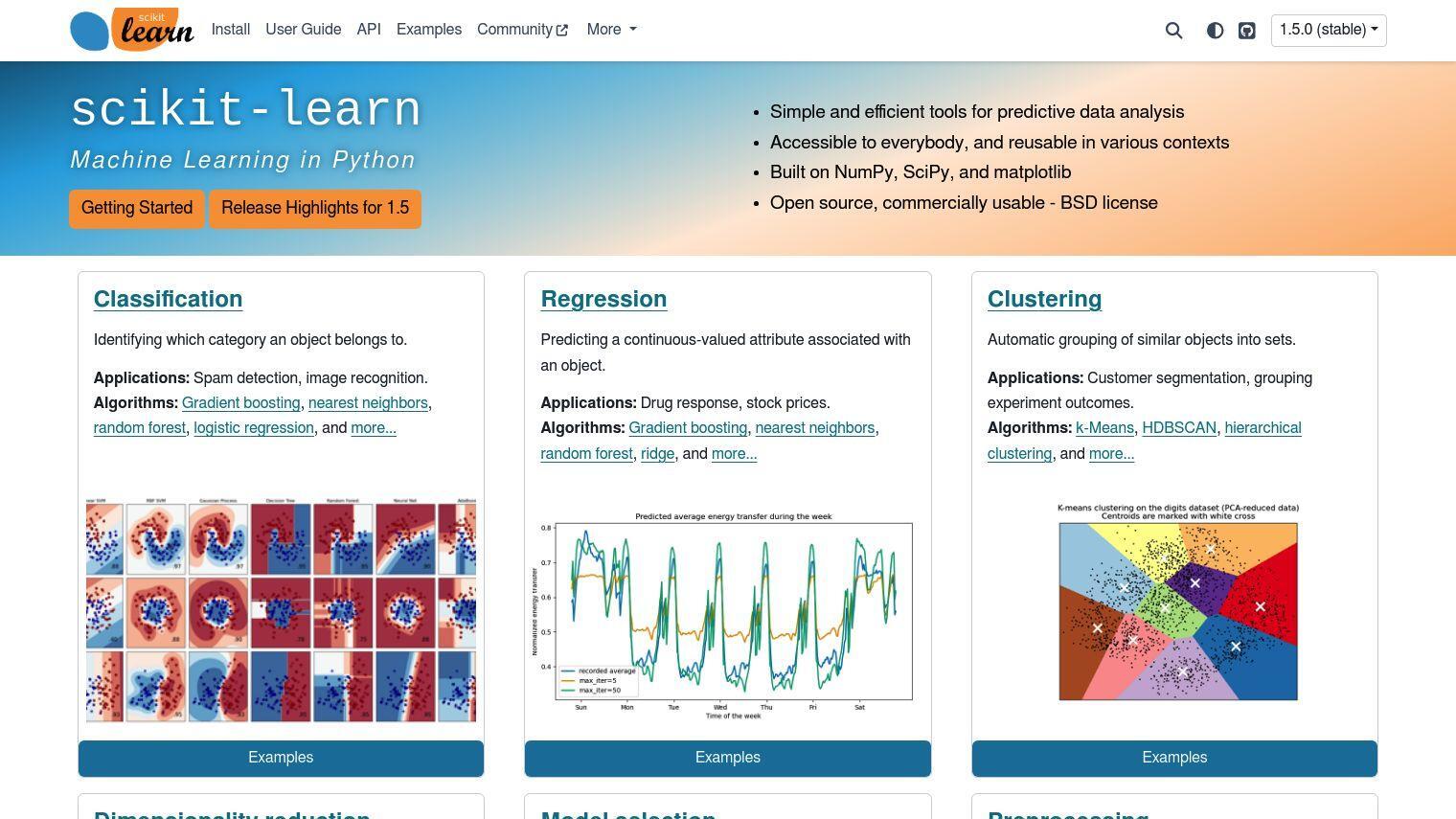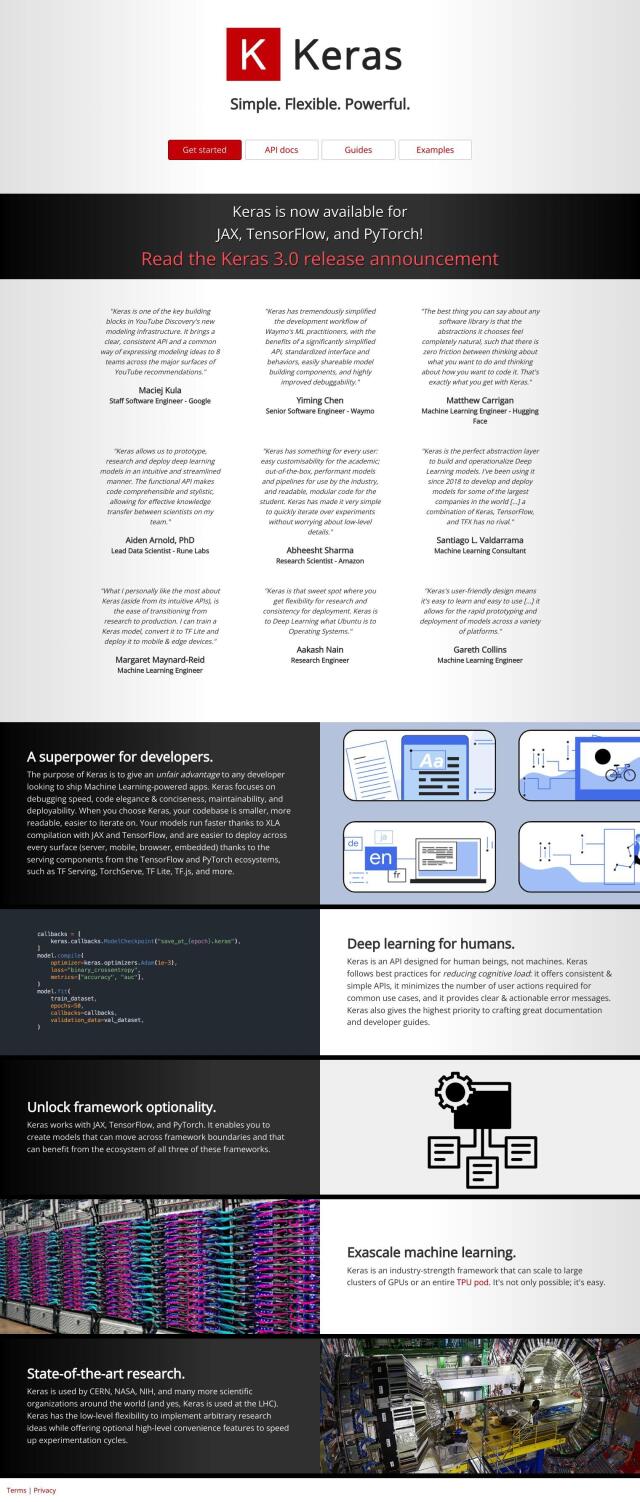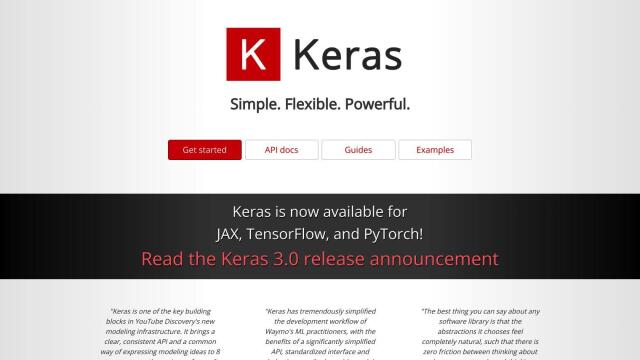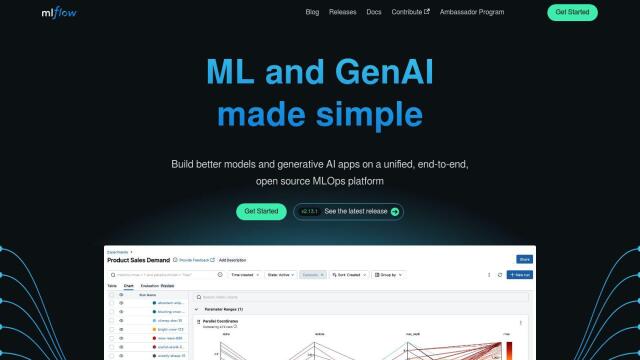scikit-learn is a Python machine learning library that provides a simple and efficient way to perform predictive data analysis. It is built on top of NumPy, SciPy, and matplotlib and is open-source, commercially available and licensed under the BSD license.
scikit-learn offers a variety of features for many machine learning tasks, making it a versatile tool. It includes:
- Classification: Identifying which category an object belongs to, with algorithms such as gradient boosting, nearest neighbors, and logistic regression.
- Regression: Predicting continuous-valued attributes, utilizing algorithms like gradient boosting, nearest neighbors, and ridge regression.
- Clustering: Automatic grouping of similar objects, using k-Means, HDBSCAN, and hierarchical clustering.
- Dimensionality reduction: Reducing the number of random variables to consider, with methods such as PCA, feature selection, and non-negative matrix factorization.
- Model selection: Comparing and validating parameters and models, utilizing grid search, cross validation, and various metrics.
- Preprocessing: Feature extraction and normalization for transforming input data, including text, for use with machine learning algorithms.
scikit-learn is used in a variety of applications, including spam detection, image recognition, drug response prediction, stock price forecasting, customer segmentation, and experiment outcome grouping.
The project is actively maintained with regular releases and active development. The community is encouraged to participate through open channels, with resources such as FAQs, support forums, and documentation to help people get started. scikit-learn is for both beginners and advanced users, with a fast learning curve and making advanced analysis in Python accessible to everyone.
Published on June 24, 2024
Related Questions
Tool Suggestions
Analyzing scikit-learn...
